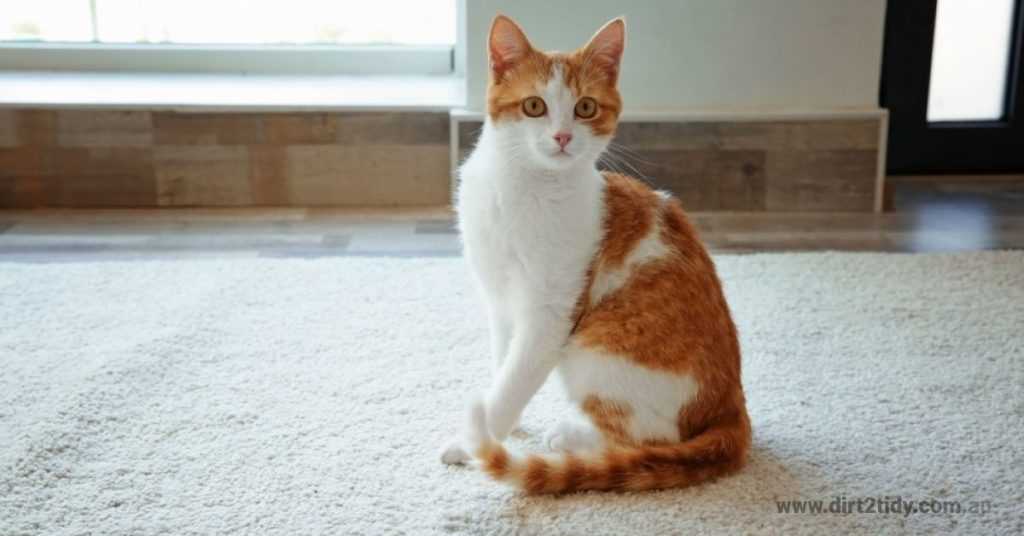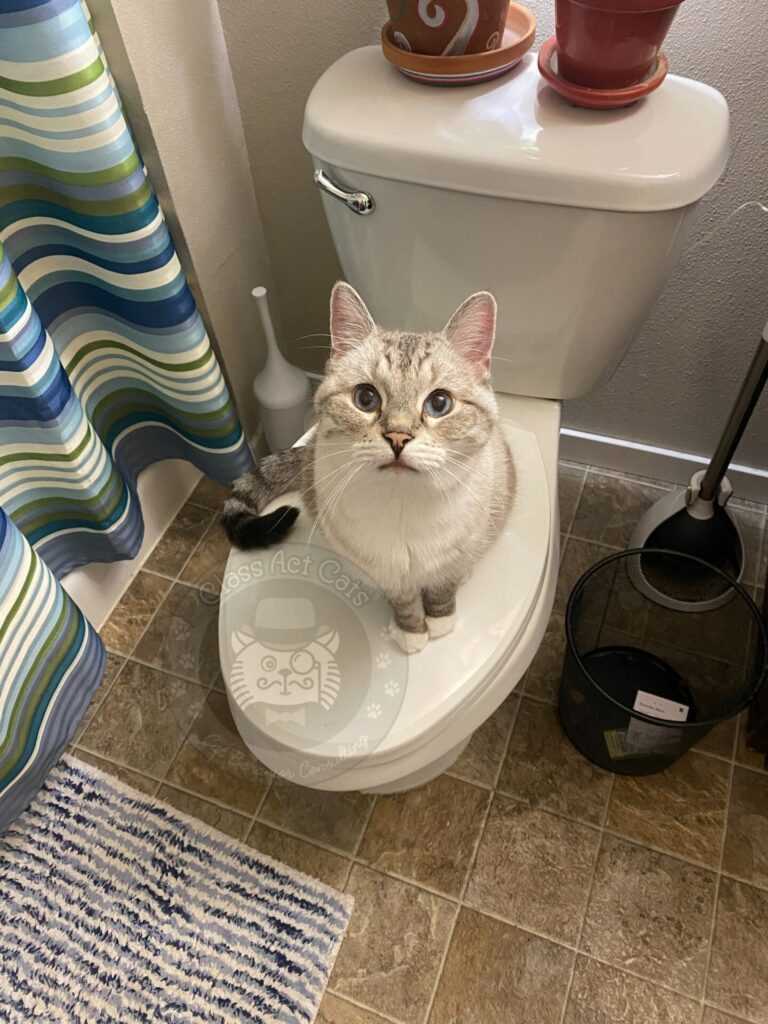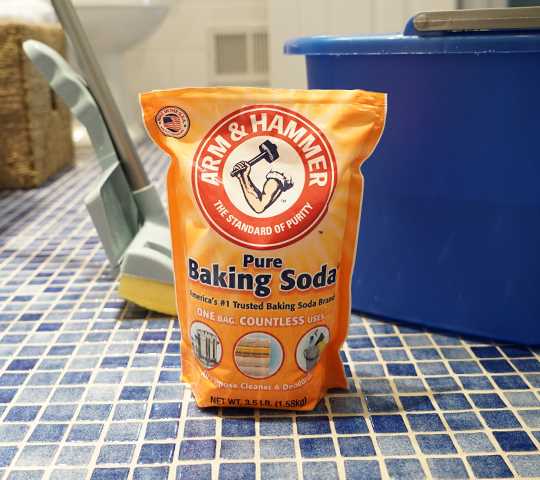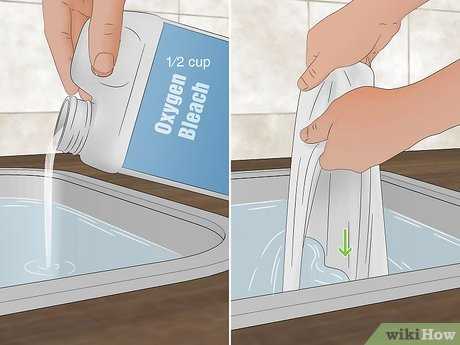



Using sodium hypochlorite for addressing feline waste stains is not advisable. This chemical can react with organic matter, creating harmful fumes that may pose a risk to both pets and humans. Instead, opt for enzymatic cleaners specifically designed for pet messes. These products break down the proteins in waste, neutralizing odors effectively.
When managing stains, first, absorb as much liquid as possible using paper towels or cloths. Blot gently; avoid rubbing, as this can spread the stain. After that, apply the enzymatic solution according to the manufacturer’s instructions, allowing it to sit for the recommended time to ensure complete odor elimination.
For lingering odors, vinegar mixed with water can serve as a natural alternative. This solution helps neutralize unpleasant smells without risking toxicity. Always test any cleaning product on a small, inconspicuous area first to avoid damaging surfaces.
Why bleach is not recommended for feline messes

Using bleach for cleaning my messes is a bad idea. It might seem like a quick fix, but it can create more problems than it solves. First, the strong fumes are harmful to my sensitive respiratory system and can cause irritation for both pets and humans.
Chemical Reactions
When bleach encounters ammonia, a component in my waste, it produces toxic chloramine vapors. These vapors are dangerous and can lead to respiratory distress. Cleaning solutions should prioritize safety for everyone in the home.
Attracting Attention
Instead of eliminating odors, bleach can mask them temporarily. This can lead to me returning to the same spot because I can still smell my mark. Using specialized enzymatic cleaners is a better option, as they break down the odor-causing substances.
| Cleaning Method | Pros | Cons |
|---|---|---|
| Bleach | Disinfects | Toxic fumes, dangerous reactions, can attract back |
| Enzymatic Cleaners | Eliminates odors, safe for pets | May require multiple applications |
For those looking to provide better care for their furry friends, consider options like the best dry food for cats with ibs to promote overall health.
Understanding the Chemical Reaction Between Bleach and Ammonia

Mixing chlorine-based solutions, like bleach, with ammonia creates harmful gases, specifically chloramines, which can irritate the respiratory system and lead to serious health issues. When ammonia is present in biological waste, adding bleach triggers this dangerous reaction.
The chemical equation behind this interaction involves the formation of chloramine compounds. These compounds are toxic and produce fumes that can cause coughing, shortness of breath, and even damage to lung tissue upon inhalation.
As a Scottish Fold and a savvy web expert, I recommend avoiding bleach entirely for addressing any biological waste. Instead, opt for enzymatic cleaners, designed to break down the specific compounds found in such waste. These alternatives are safer and more effective in neutralizing odors.
Always prioritize safety and health when choosing cleaning solutions. Protect yourself and your environment by steering clear of bleach in these situations. Remember, prevention and proper cleaning methods are key to maintaining a fresh and safe living space.
Safe Alternatives to Bleach for Cleaning Feline Messes

Vinegar and water solution effectively neutralizes odors and disinfects surfaces. Mix equal parts of white vinegar and water in a spray bottle. Apply it to the stained area and let it sit for a few minutes before blotting it up.
Baking Soda
Baking soda excels at absorbing smells. After applying vinegar solution, sprinkle baking soda over the area. Allow it to sit for several hours or overnight, then vacuum it up.
Enzymatic Cleaners
Enzymatic products specifically break down organic stains and odors. Look for cleaners containing enzymes designed to tackle pet messes. Follow the instructions on the label for the best results.
- Hydrogen peroxide can be used cautiously on specific surfaces. Test a small, inconspicuous area first.
- Castile soap mixed with water creates a gentle but effective cleaner for various surfaces.
- Essential oils, such as lavender or lemon, diluted in water can provide pleasant scents while disinfecting. Ensure these are safe for pets.
These alternatives promote a safer environment while effectively managing unwanted odors and stains. Always test any solution on a small area first to avoid damage.
Steps to Properly Remove Feline Waste Without Harsh Chemicals
First, blot the affected area using paper towels or a clean cloth to absorb as much liquid as possible. Press firmly but avoid rubbing, which can spread the stain.
Next, prepare a solution using equal parts white vinegar and water. Pour this mixture onto the stained spot, allowing it to sit for 5-10 minutes. The acidity of vinegar helps neutralize odors.
Afterward, use a clean cloth to blot the area again, soaking up the vinegar solution. Rinse the area with water and blot dry. This will help eliminate any lingering scent.
For persistent odors, sprinkle baking soda over the damp area after rinsing. Let it sit for several hours or overnight to absorb odors. Vacuum the baking soda thoroughly.
Finally, to deter future incidents, consider using an enzymatic cleaner specifically designed for pet messes. These products break down organic matter and help ensure all traces are eradicated.
How to Neutralize Odors from Cat Urine
For tackling unpleasant scents, a straightforward approach involves using enzymatic cleaners. These products specifically target and break down the compounds responsible for the odors, ensuring effective elimination. Follow the instructions on the label for best results.
Homemade Solutions

If ready-made options aren’t available, a mixture of vinegar and water can serve as a natural alternative. Combine one part vinegar with one part water in a spray bottle. Apply this solution to the affected area, allowing it to sit for a few minutes before blotting with a clean cloth.
Odor Absorbers
Another method involves using baking soda. Sprinkle this powder generously over the area after cleaning. Let it sit for several hours or overnight to absorb lingering smells. Vacuum thoroughly afterward to remove the baking soda residue.
Regular cleaning routines can help prevent the buildup of unpleasant odors. Identifying and addressing any sources of smell promptly ensures a fresher environment.
Preventing future accidents in your home
To avoid mishaps, create a designated area for me to do my business. Set up a litter box in a quiet and easily accessible spot, ensuring it’s cleaned regularly.
Utilize pheromone diffusers or sprays that help promote relaxation and reduce stress, making it less likely for me to seek alternative spots.
Encourage positive reinforcement by rewarding me for using the litter box. Treats and praise go a long way!
Regular vet check-ups can help detect any health issues that might lead to accidents. Keep an eye on my bathroom habits to catch any changes early.
Consider investing in high-quality litter that absorbs odors well and is comfortable for my paws. This can improve my overall experience.
For those stubborn spots, try using safe alternatives to bleach for cleaning, ensuring the area is odor-free and inviting for future use. For more cleaning tips, check this link: can i use powder tsp in pressure washer.
When to Consult a Professional Cleaning Service
If persistent odors or stains remain after attempting to remove them, it’s time to consider bringing in experts. Here are specific scenarios that indicate hiring a cleaning service:
- Severe Damage: If the affected area has extensive contamination that penetrates deep into carpets, flooring, or furniture.
- Multiple Incidents: If there have been several mishaps in different locations, indicating a potentially larger issue.
- Health Concerns: If anyone in the household has allergies or respiratory issues exacerbated by lingering odors or bacteria.
- Time Constraints: If managing the cleanup process is overwhelming and there’s no time for thorough cleaning.
- Unsuccessful DIY Methods: If previous cleaning attempts haven’t resolved the issue, professional-grade solutions may be necessary.
Engaging specialists can provide access to advanced equipment and cleaning agents, ensuring a more thorough remediation process. This can save time and ensure a healthier environment.
FAQ:
Is it safe to clean cat urine with bleach?
No, it is not safe to clean cat urine with bleach. Mixing bleach with ammonia, which is commonly found in cat urine, produces toxic chloramine vapors that can be harmful to both humans and pets. Instead, it is recommended to use enzyme-based cleaners specifically designed for pet stains, as they effectively neutralize odors and break down the urine components without posing health risks.
What are the best alternatives to bleach for cleaning cat urine?
There are several effective alternatives to bleach for cleaning cat urine. First, enzymatic cleaners are highly recommended, as they contain natural enzymes that break down uric acid crystals and eliminate odors. Another option is vinegar mixed with water, which can help neutralize the smell. Baking soda can also be sprinkled on the area after cleaning to absorb any remaining odors. These alternatives are safer for both pets and humans while still providing effective cleaning results.
How can I effectively remove cat urine stains from carpets?
To effectively remove cat urine stains from carpets, begin by blotting the area with paper towels to absorb as much liquid as possible. Next, apply an enzymatic cleaner according to the product instructions, allowing it to sit for the recommended time to break down the stain. Afterward, blot the area again with a clean cloth to remove excess cleaner. If needed, rinse the area with water and blot until the carpet is damp but not wet. Finally, sprinkle baking soda on the spot to help neutralize any lingering odors, and vacuum it up once it dries. Regular cleaning and prompt attention to accidents can help maintain your carpet’s condition.








